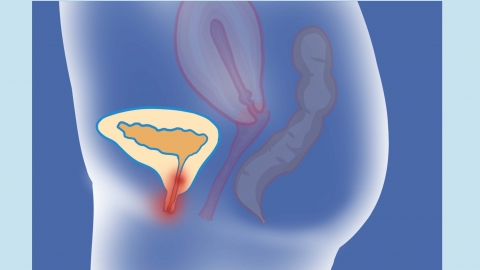What are the risks of benign prostatic hyperplasia (BPH)?
Generally, if left untreated, benign prostatic hyperplasia (BPH) may cause various complications to the urinary system and daily life, including worsening of urinary dysfunction, urinary tract infections, urinary retention, kidney function impairment, and reduced quality of life. The specific complications are as follows:

1. Worsening of Urinary Dysfunction: In the early stages, BPH often presents with symptoms such as frequent urination and urgency. If the condition progresses, the enlarged prostate tissue further compresses the urethra, exacerbating difficulty in urination. Symptoms may include a thinner urine stream, interrupted flow, prolonged urination time, and in severe cases, the need to strain to void urine.
2. Urinary Tract Infections: Enlarged prostate may obstruct the smooth discharge of urine, leaving residual urine in the bladder. This residual urine provides a favorable environment for bacterial growth, increasing the risk of urinary tract infections such as cystitis and urethritis.
3. Urinary Retention: As the condition worsens, residual urine volume in the bladder gradually increases, weakening the bladder's contractile function. Eventually, this may lead to urinary retention. During acute urinary retention, patients may experience severe lower abdominal distension and pain, and are unable to urinate voluntarily, requiring urgent medical attention for catheterization.
4. Kidney Function Damage: Prolonged urinary retention increases bladder pressure, potentially causing urine to flow backward into the ureters and renal pelvis, leading to hydronephrosis. This condition can compress the kidney tissue, gradually impairing kidney function.
5. Reduced Quality of Life: Frequent urination and urgency can disrupt normal daily routines. Patients may need to use the restroom repeatedly during the day, limiting their ability to stay out for long periods or work effectively. Nighttime urination frequently interrupts sleep, leading to poor sleep quality and daytime symptoms such as fatigue, lack of concentration, and low energy levels.
Patients with BPH are advised to monitor their condition early through lifestyle adjustments and regular follow-ups. When necessary, standardized interventions should be implemented to reduce the risk of complications. It is important to avoid prolonged sitting, holding urine, and consuming spicy or irritating foods and alcohol to help maintain urinary system health.




